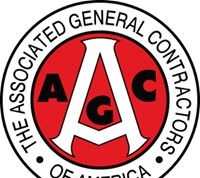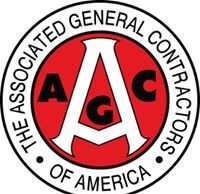Attorney General Holder Delivers Remarks at Regional Roundtable Meeting in Chicago on Building Community Trust
Good afternoon. It’s a pleasure to be back in Chicago on such an unseasonably warm day.
WASHINGTON, D.C. – December 15, 2014 – (RealEstateRama) — I want to thank Mayor [Rahm] Emanuel and Police Superintendent Garry McCarthy for welcoming me to this great city, as well as our outstanding U.S. Attorney for the Northern District of Illinois, Zach Fardon, for his help in pulling together this important meeting.
I also want to thank all of the assembled law enforcement, faith, community, and student leaders for joining me to talk about the work that is underway here in Chicago.
This session is the fourth in a series of meetings I will be convening with law enforcement and community leaders around the country in the coming weeks.
We’re here in Chicago today because this city is led by elected officials, law enforcement, and community leaders who understand that we will only be able to move forward by working closely together, across issues that divide us, to make sure the entire community can thrive.
A short time ago, I had the chance to speak with leading members of the bench and bar – from across the state – at the Illinois Judges Association Annual Convention. It was a productive opportunity to talk about our ongoing effort to improve the criminal justice system and to restore trust between police officers and those they serve. Chicago has demonstrated tremendous leadership, especially under Mayor Emanuel.
Over the last three years, the Mayor and Superintendent McCarthy have made it a priority to improve trust between Chicago residents and the Chicago Police Department – by implementing reforms to training and supervision; improving the City’s independent response to allegations of police misconduct; improving transparency by opening internal investigation files to public scrutiny; and investing in community policing – particularly through the Mayor’s Commission for a Safer Chicago.
This work holds significant promise for residents throughout this city. But these concerns touch a wide range of communities from coast to coast.
The national conversations we’re currently convening are more necessary than ever because, as you all know, millions of people throughout the nation have come together in recent days – bound by grief and anguish – in response to the tragic deaths of Michael Brown, in Ferguson, Missouri, and Eric Garner, in New York City.
As I announced last week, the Department of Justice is currently conducting an independent, thorough, fair, and expeditious federal civil rights investigation into each of these incidents. And, as President Obama and I have indicated, the time has come to do even more.
The tragic losses of these and far too many other Americans have raised urgent, national questions. And they have sparked an important conversation – testing the sense of trust that must exist between law enforcement and the communities they serve and protect.
As the brother of a retired police officer, I know in a personal way how brave these public servants are. So it is for their sake as well that we must seek to heal the breakdowns we have seen.
Now, before we get started, I wanted to provide you all with a brief update on some of the policy announcements that President Obama recently made – about the constructive steps we’re taking to address these problems, and ensure that this national dialogue results in meaningful action.
Last week, the Administration released its review of programs that support the acquisition of equipment from the federal government to local law enforcement authorities. The report identifies several ways in which these programs could be improved to better ensure the safety and security of police officers and the communities they protect. And based on that report, the President has instructed that an Executive Order be drafted directing federal agencies to work with law enforcement and civil rights organizations to improve the ways in which these programs are structured, implemented, and audited.
The President also instructed his team to draft an executive order creating a Task Force on 21st Century Policing, co-chaired by Philadelphia Police Commissioner Charles Ramsey and former Assistant Attorney General for DOJ’s Office of Justice Programs, Laurie Robinson. This task force will examine how to promote effective crime reduction while building public trust. And it will be directed to prepare a report and recommendations within 90 days of its creation.
Finally, President Obama proposed a three-year, $263 million investment in body-worn cameras, the expansion of training for law enforcement agencies, and additional resources for police department reform, including additional opportunities for DOJ to facilitate community and local law enforcement engagement.
This proposal would help purchase some 50,000 body-worn cameras. And together with new Justice Department guidance on profiling by federal law enforcement agencies, these important steps hold significant promise in moving us in the right direction.
This new guidance will expand prohibited profiling criteria by explicitly banning profiling based not only on race – but also, for the very first time, on gender, national origin, religion, sexual orientation, and gender identity.
It will close the so-called national security loophole and apply the same uniform standard to all investigations, national security operations, and intelligence activities conducted by federal law enforcement. It will govern the actions of FBI agents and all other federal agents conducting law enforcement activities, even when those agents are assigned to state and local task forces.
It will apply to state and local officers when they are participating in federal task forces. And it includes training, oversight, and accountability measures to ensure that all federal law enforcement activities and operations reflect our commitment to keeping the nation safe while upholding our most sacred values.
Throughout my tenure as Attorney General, I have repeatedly made clear that racial profiling by law enforcement is not only wrong, it is misguided and ineffective – because it can mistakenly focus investigative efforts, waste precious resources, and, ultimately, undermine the public trust. Particularly in light of recent incidents we’ve seen at the local level – and the concerns about trust in the criminal justice process which so many have raised throughout the nation – it’s imperative that we take every possible action to institute sound, fair and strong policing practices.
The tragic deaths of Michael Brown, Eric Garner, and far too many other Americans have revealed a deep distrust between some communities and their police forces. These incidents also illustrated the need to develop and widely disseminate to law enforcement best practices for responding to public demonstrations and developing and maintaining public trust.
The Department of Justice has begun this work. We will continue it here in Chicago – and in communities around the country – over the coming weeks.
And we will continue to rely on your leadership, your expertise, and your unique perspectives to help ensure that historic divides between law enforcement and the communities that they serve can be bridged by bringing together elected officials, law enforcement, faith and community leaders to ensure both dialogue – and action – to address underlying barriers to trust.
Once again, I would like to thank our partners in Chicago, and particularly Mayor Emanuel, for hosting me today. I look forward to a substantive and hopeful discussion.
Component:
Office of the Attorney General


















